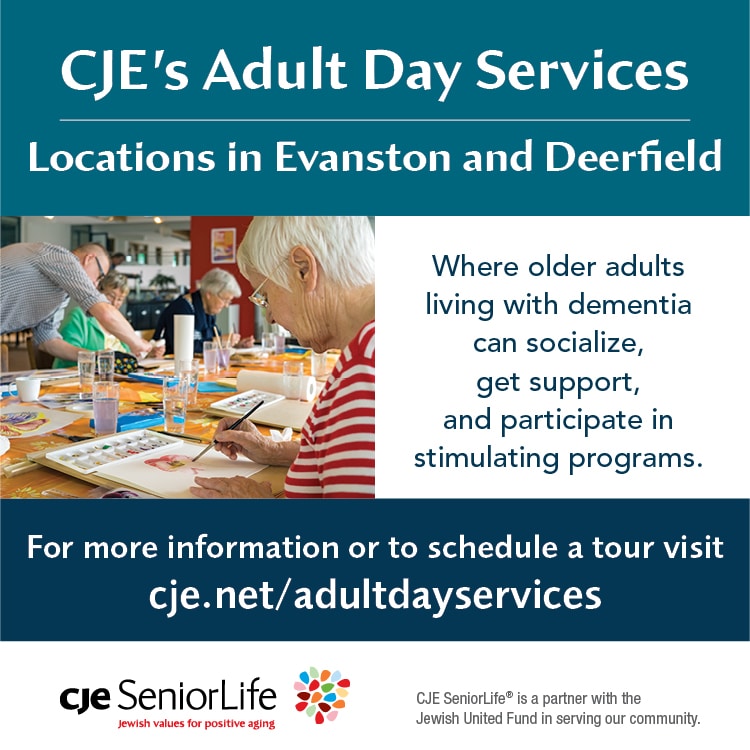Think back to the worst flu you’ve ever had: the body aches, weakness and exhaustion to the point where even simple tasks like brushing your teeth hurt. Now imagine trying to constantly live your life — going to work, spending time with friends and family, participating in hobbies — with that feeling.
For people with myalgic encephalomyelitis (ME), also known as chronic fatigue syndrome (CFS), living through a flulike fog is their reality, every single day — for years on end.
For people with myalgic encephalomyelitis (ME), also known as chronic fatigue syndrome (CFS), living through a flulike fog is their reality, every single day — for years on end.
ME is a debilitating chronic condition that affects between 836,000 and 2.5 million Americans, though most of them have not been diagnosed, according to the Centers for Disease Control and Prevention (CDC).
The most common symptoms include extreme fatigue, memory and concentration problems, sleep issues, joint and muscle pain, headaches and post-exertional malaise (worsening of symptoms after minimal physical or mental exertion).
ME/CFS most commonly appears in people between 40 and 60 years old, but it also affects children, teens and adults of all ages. It’s more common among women than men. Scientists don’t completely understand what causes the condition. And a cure does not currently exist.
Because the condition is often misunderstood, healthcare providers are working to increase awareness of symptoms and their often-debilitating effects.
Debilitating symptoms
ME/CFS can start gradually or acutely. Acute onset might come after a viral infection, such as from the Epstein-Barr virus, or after trauma like a car accident or surgery, according to the CDC, though often the cause is unknown. With gradual onset, the symptoms develop over months or years.
Chicago resident Megan Doherty woke up feeling fine one morning in June 2015. In her mid-30s, she was strong and active and working on a documentary series photographing inhabitants of Chicago’s Back of the Yards neighborhood. She went to a martial arts class that morning, as she often did, and out with a friend in the afternoon. Suddenly, Doherty started feeling warm and weak. She could barely walk or stand. Her heart was racing, and she was trembling.
Her friend called an ambulance, and when emergency medical technicians (EMTs) arrived, they incorrectly blamed Doherty’s sickness on illegal drugs and dehydration. They couldn’t think of another explanation for a young, otherwise healthy woman to experience these symptoms.
Doherty says she felt horribly sick, as if she had been poisoned. After that day, she would not feel truly well again. “That morning I was tough and strong and fierce,” she says. “A few hours later, it felt like I was 200 years old.”
Doherty went from physician to physician trying to determine what was wrong, but healthcare providers, like the EMTs who saw her initially, couldn’t give her a definitive answer. One neurologist chalked up her symptoms to anxiety and depression, which often lead to similar symptoms. “That felt like a denial of reality and a dismissal of my experience,” Doherty says. “It was absolutely heartbreaking.”
Misunderstood disorder
A study by researchers at DePaul University, published in 2019 in Health Care for Women International, surveyed 541 people with ME/CFS and found that 89% had experienced a dismissive attitude from a healthcare provider. People with the condition often encounter insensitivity, inappropriate beliefs about causes, inappropriate treatments, disbelief and a general lack of knowledge, the study says. Because ME/CFS symptoms overlap with so many other disorders, like depression, those who have the condition are often misdiagnosed.
Leonard Jason, PhD, one of the DePaul researchers, has dedicated his career to better understanding ME/CFS and to offering relief to people who have the condition. He’s made strides in understanding how this complex condition affects people physically, psychologically and socially.
“Everyone experiences fatigue at some point,” Jason says. “But this syndrome is much more serious than the fatigue people complain about day to day.”
“Everyone experiences fatigue at some point,” Jason says. “But this syndrome is much more serious than the fatigue people complain about day to day.”
Jason says that even the name — chronic fatigue syndrome — can lessen its perceived severity. A flippant attitude has accompanied perceptions of ME/CFS since the CDC first defined it in 1988, Jason and his team have found, with stigmatizing descriptions like “the yuppie flu.”
But there is a biological basis for this disorder. Research points to possible correlations between ME/CFS and the Epstein-Barr virus, which most commonly causes mononucleosis.
A 2009 study in the journal Pediatrics found that six months after an infection with mono, 13% of adolescents had symptoms of ME/CFS. The rate dropped to 4% after 24 months. Jason is a principal investigator of a new five-year, $2.8 million NIH-funded study that is looking into the link between mono and ME/CFS.
The degree of altered functional connectivity — or a how the different regions in the brain work together — may be related to the severity of chronic fatigue, according to a 2016 University of Florida study in the journal Brain Connectivity.
“These scans showed that I have brain damage,” says Doherty, who thinks that her falls from horseback riding could have contributed to inflammation. “They show that this condition is not some type of modern-day hysteria.”
Holistic treatments
Leslie Mendoza Temple, MD, medical director of the Integrative Medicine Program at NorthShore University HealthSystem, treats ME/CFS patients frequently. As a holistic care provider, she incorporates treatments like acupuncture, massage therapy, herbal supplements, cannabis, yoga and movement into her treatment approaches.
When treating people with ME/CFS, Mendoza Temple says it’s important to start by addressing the factors she can help. “I try to put out the fires first and then see what’s left,” she says. Mendoza Temple first focuses on sleep, prescribing integrative therapies for insomnia, and then moves on to addressing the pain, which she targets with acupuncture, herbs or medical cannabis, as appropriate.
“I acknowledge that this condition is not in my patients’ heads,” Mendoza Temple says. “But a person’s bodily dysfunction can certainly do a number on one’s head.”
Some patients, Mendoza Temple says, have had success with self-guided hypnosis that trains the brain to lessen the impact of pain and fatigue messages.
The chronic nature of the disease — along with the severity, stigma and lack of a cure — can be detrimental to mental health. A small-scale 2016 British study published in The Lancet found that people with ME/CFS died by suicide seven times more often than the general population.
Finding effective treatments and, ultimately, a cure for ME/CFS is essential to helping many people get their lives back. “The direction we’re trying to move is finding biological markers of the disease,” Jason says. Identifying a biomarker — or substance or process in the body that can be measured and linked to the disorder — will give researchers a clearer indication of where to focus research.
In the meantime, healthcare providers and the public can start by acknowledging the legitimacy of ME/CFS, as well as its symptoms and its impact. Only through education, awareness and compassion can the medical community move closer to better treatment for ME/CFS and, ultimately, to a cure.

Valerie Nikolas is a health and wellness writer based in Chicago. She is a recent graduate of Northwestern’s Medill School of Journalism.












